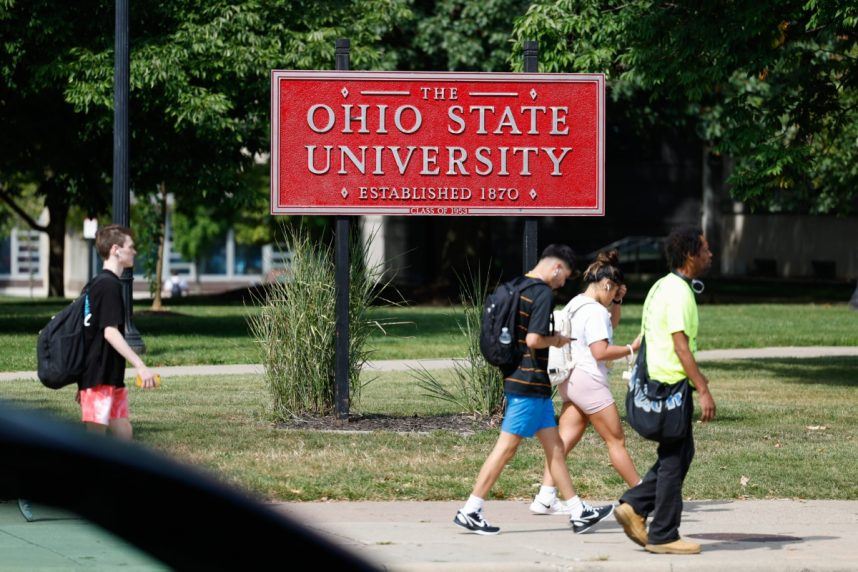Gambling
Ohio iGaming Bill Introduced, But Online Casinos Have Opponents

Posted on: September 5, 2024, 10:26h.
Last updated on: September 5, 2024, 10:41h.
An Ohio lawmaker this week filed legislation in the Columbus capital seeking to legalize online casinos with interactive slot machines and table games.

Ohio is currently home to brick-and-mortar casinos and video lottery racinos, plus retail and online sports betting. State Sen. Niraj Antani (R-Miamisburg) says the successful rollout of internet sports gambling demonstrates the state’s ability to properly regulate and safeguard consumers for remote wagering.
As gaming has evolved in our state and we’ve seen massive success with sports betting, it’s now time to legalize iGaming in Ohio,” said Antani. “Many Ohioans don’t have close access to a casino or racino, but should be able to participate in this entertainment option.”
Antani’s Senate Bill 312 hasn’t yet been assigned to a committee for initial review.
The state lawmaker said along with generating new tax revenue, iGaming would crack down on the illegal offshore market that continues to target online casino players in states where such gambling isn’t allowed. Bovada, a leading offshore website that runs unregulated internet casino gambling in the United States, recently withdrew its platform from Ohio after Matt Schuler, the executive director of the Ohio Casino Control Commission, sent a cease-and-desist letter to the company based in Curacao.
iGaming Would Help State’s Coffers
Currently, just seven states have authorized iGaming — Connecticut, Delaware, Michigan, New Jersey, Rhode Island, Pennsylvania, and West Virginia. A study from London-based gaming regulatory intelligence firm Vixio that Casino.org reported on last month concluded that states without online casinos are leaving a tax windfall of up to $15 billion a year on the table.
Antani wants Ohio to become the nation’s eighth iGaming state and begin reaping the financial tax reward.
The Study Commission on the Future of Gaming in Ohio concluded in its July 2024 report that online casinos could create $500 million to $650 million in new annual tax revenue for the state. The commission assumed similar iGaming tax rates as Michigan and Pennsylvania, two similarly populated states that have online casinos.
Pennsylvania levies a 54% tax on online slots and 16% on online table revenue. Michigan levies a graduated iGaming tax based on total revenue that ranges from 20% to 28%.
While iGaming would certainly grow state revenue, the study commissioners said it isn’t without risk.
“While these dollars would be a game-changer for addressing the state’s childcare crisis or many other worthy endeavors, caution and thoughtful implementation are warranted as iGaming may have adverse effects on Ohio businesses and workers if done poorly or through a rushed process,” the report concluded.
Online Casino Foes, Fellows
There are many opponents to online casino gambling in Ohio. Among them are leaders at Jack Entertainment, the only casino company based in the Buckeye State.
During the Study Commission’s April meeting, Daniel Reinhard, Jack Entertainment’s senior vice president of government affairs, testified that iGaming would hurt brick-and-mortar gaming and lead to job layoffs.
Just like online retail has decimated local retail, iGaming will do the same under any logical scenario,” Reinhard opined. “iGaming will damage Ohio businesses and cost Ohio jobs leading to diminished capital investment and degradation of Ohio’s existing tax base.”
Jack Entertainment operates Jack Cleveland Casino and Jack Thistledown Racino. In contrast, Jack’s competitors, MGM Resorts and Penn Entertainment, expressed support for iGaming.
MGM runs the MGM Northfield Park racino. Penn operates four gaming properties in the state — Hollywood Casino Toledo, Hollywood Casino Columbus, Hollywood Gaming at Dayton Raceway, and Hollywood Gaming at Mahoning Valley Race Course.
Jeff Morris, who heads Penn’s government relations unit, said internet gaming has been a “catalyst for growth” in the states where the company operates internet casinos in partnerships with land-based properties.










